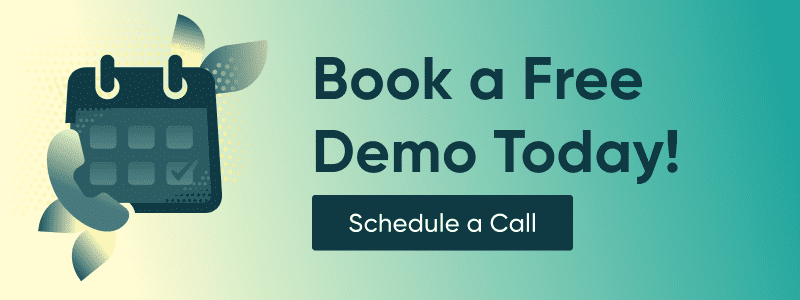Drata Alternatives & Competitors: Our Top 7 Picks
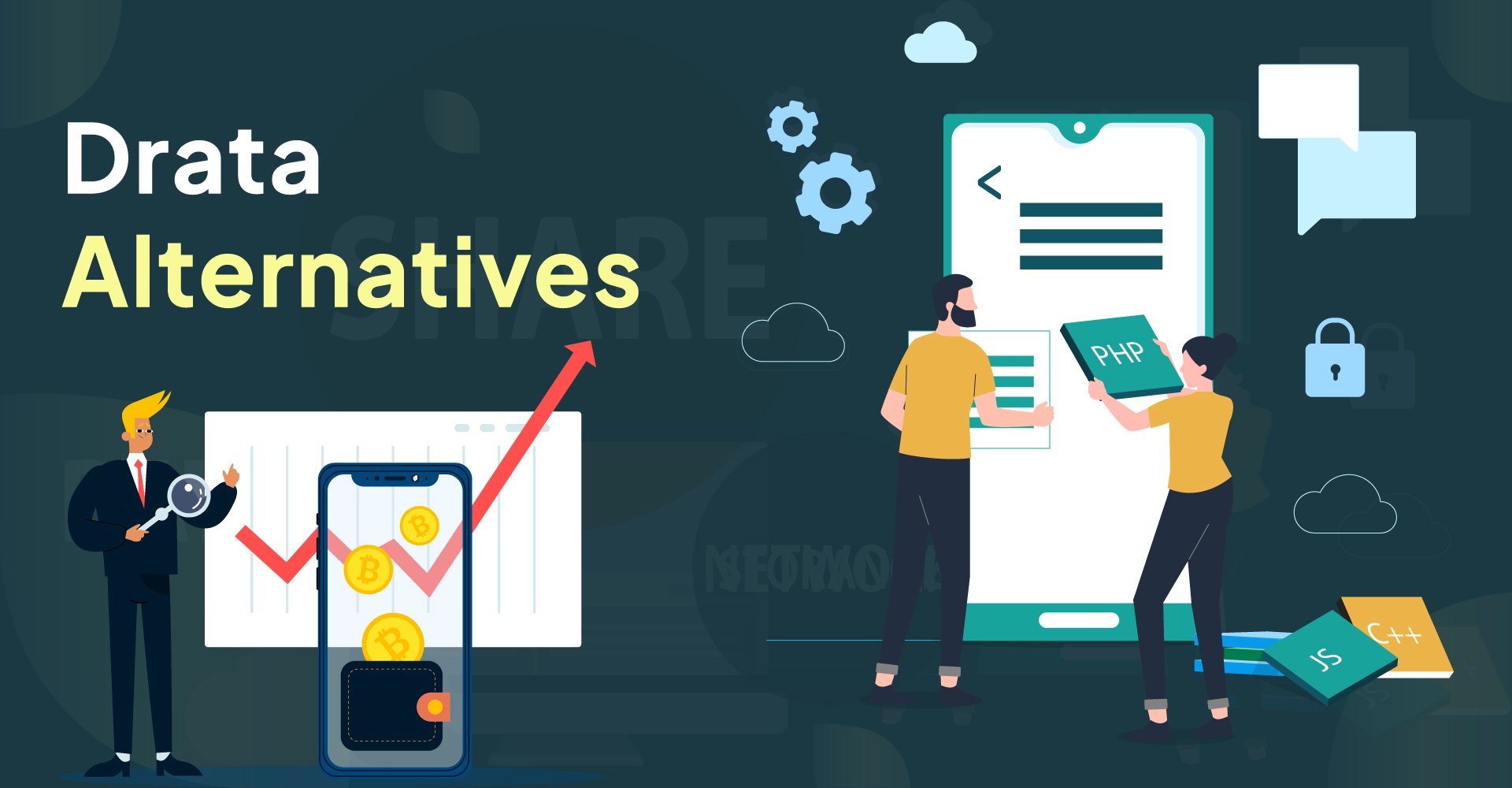
Table of Contents
Best Drata Alternatives and Competitors To Help You Explore Your Options
Drata is a compliance automation platform that examines current systems, leads them toward compliance, and maintains security standards to meet requirements. This package is attuned to compliance with SOC2, ISO 27001, HIPAA, PCI DSS, the UK’s Cyber Essentials, and the EU’s GDPR, among others.
A library of control templates lets you pick a standard out of the box and the Drata system automatically adjusts its processes to fit the requirements of the chosen standard. The system scans IT assets and checks on their configurations. If there are security loopholes, it lists these vulnerabilities for action. After following guidance to improve security, the administrator scans the system again and checks for an improved score.
The package includes a set of questionnaires to send out to vendors. This feeds into the third-party risk assessment part of the package. The assessment of the returned questionnaires is automated and follows Drata’s internal scoring system.
Becoming compliant is an iterative process and once it is achieved, the amount of work needed to protect data reduces. The Drata system keeps checking, ensuring the security doesn’t loosen and that new systems are set up properly.
Pros and Cons of Drata
The Drata system relies on its library of integrations that scan well-known software packages and operating systems to ensure that their configuration and usage match the controls defined within the Drata database. This speeds up risk assessment. However, it is a weak point in the Drata methodology because it creates blindspots when a company relies on systems that aren’t catered for in the Drata integrations library.
It is possible to create custom compliance controls but then the buyer isn’t getting any value out of the Drata system. However, if a company can do that, why do they need Drata?
Many companies might be a little wary of the Drata solution and hope for better options that don’t require them to either drop lesser-known software or create their own compliance system.
The market for compliance automation systems is surprisingly broad and companies that don’t want to opt for Drata would need to spend a lot of time drawing up a shortlist to consider. Fortunately, we’ve done that work to save you time. In this review, you will discover seven alternatives to Drata.
1. Enzuzo
Enzuzo is an accessibly-priced consent management package for websites but upgrade to the Enterprise edition and you get a full Governance, Risk, and Compliance (GRC) package.
The Enzuzo system is available in editions that suit website owners of all sizes and complexities from the free edition for hobby sites and sole traders, right up to the Enterprise package that is suitable for multinationals.
We’ll look at all of Enzuzo's plans in case your business is not in the market for a full GRC package just yet.
Pricing
To get a GRC package that fully competes with the features of Drata, you need to look at the Enterprise edition. This is the top plan from the Enzuzo platform – there are six editions in total. Let’s take a quick look at the prices of these plans:
- Free – $0 per month
- Starter – $9 per month
- Growth – $29 per month
- Pro – $79 per month
- Agency – $130 per month
- Enterprise – Custom pricing
Naturally, you get more features with successively higher editions and the GRC features are only available in the Enterprise plans. All plans cater to websites, so you probably wouldn’t opt for Enzuzo if your business didn’t collect personally identifiable information about members of the general public through the Web.
Features
The core of the Enzuzo platform is its consent management tools for websites and legal pages that all sites need, such as Terms of Service. As plans progress to more capable editions, more features get added.
An exceptional element of the Enzuzo pack is its DSAR management function, which is even present in the free edition. Drata doesn’t offer mechanisms for DSAR at all and so this is an area where Enzuzo has a clear advantage. Even the free plan has some DSAR management tools included. Higher plans provide DSAR processing automation.
All paid plans provide a DSAR form page for your website and an audit trail for request processing. The system can interpret communications with data subjects into 24 languages and it also provides compliance reports for this area of data privacy management.
Cookie consent management features include Global Privacy Control (GPC), location adaptations, and geo-blocking for uncatered-for locations. The platform repeatedly scans your data and produces appropriate consent policies for the types of data that it encounters and the countries from which the site is accessed.
For the features that compete head-on with the Drata platform, you need to examine the advanced functionality that you get from the enterprise edition of Enzuzo.
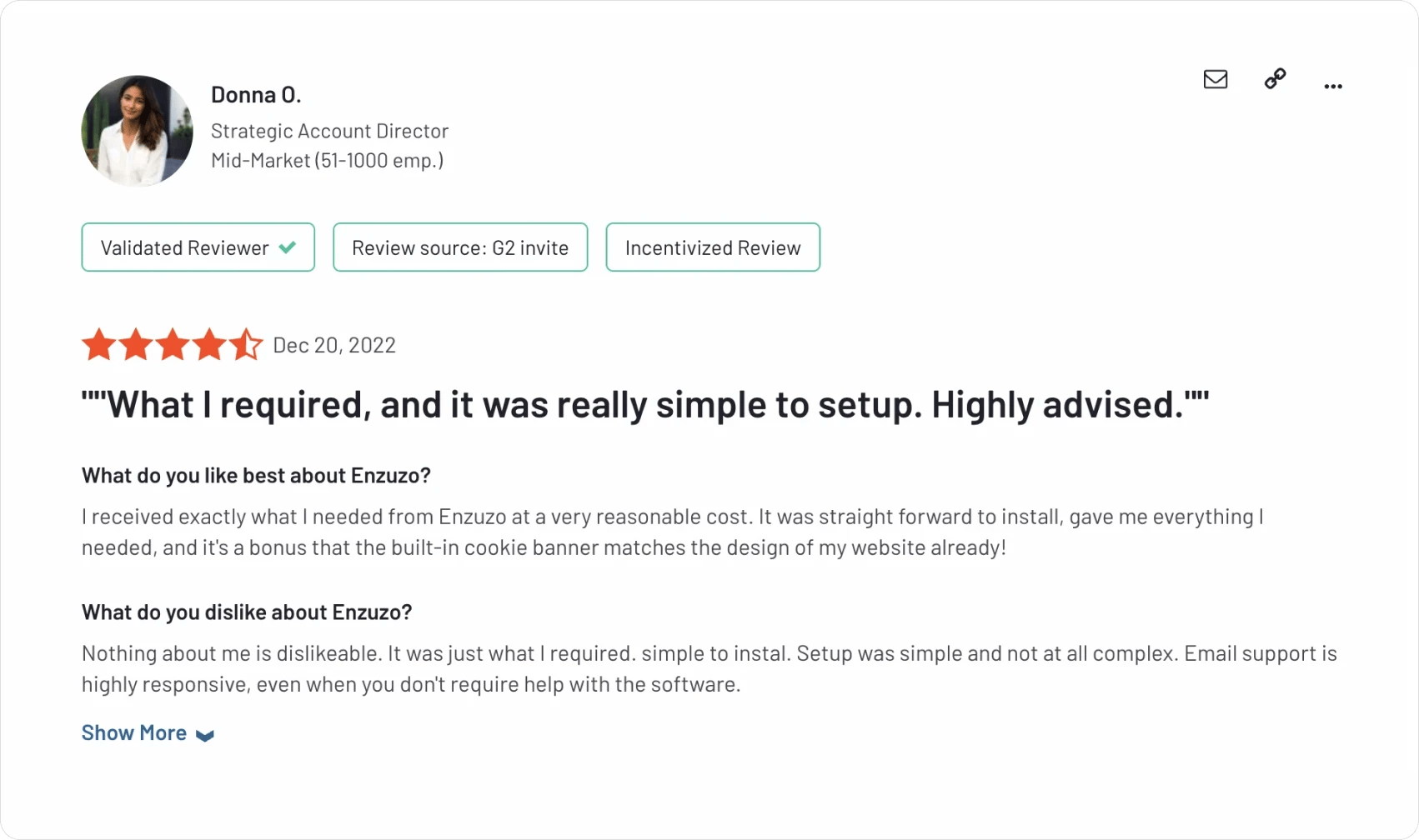
Advanced Functionality
The elevated features of the Enzuzo enterprise plan provide risk assessments, data privacy controls (governance), and compliance management. These are the functions that Drata offers, enabling a fair comparison between that package and the Enzuzo platform.
Data management
The asset discovery, data mapping, and categorization functions in Enzuzo are far superior to those in Drata. While Drata focuses on application security, Enzuzo concentrates on PII protection. Although it might seem that those two routes result in the same thing, they actually have different consequences.
The big flaw in the Drata system is that it relies on the ability to interface with applications to assess security and track activity. However, that strategy is only effective when the platform has integrations for every software package. Enzuzo doesn’t rely on interactions with applications but it identifies where the data is and how it relates to different data privacy standards.
Data privacy standards
The number of data privacy standards that Drata can tailor to is greater than the list offered by Enzuzo. You don’t get credit card data controls for PCI DSS or healthcare data usage scrutiny for HIPAA with Enzuzo. But you do get PII controls for GDPR, CCPA, and Quebec Law 25 with this package.
An important feature of PII protection lies in geography. Specifically, the location of the data subject, the location of your data store, and the location of the workers who access the data. Enzuzo records all of these factors in its activity logs, which helps with compliance auditing.
Vendor risk assessment
Both Drata and Enzuzo provide vendor risk management. In both cases, the platform relies on supplier self-reporting and doesn’t include the services of data breach detection through Dark Web scanning. Each of these two platforms provides a digital questionnaire to send to vendors and scores the responses.
Compliance management
Like Drata, Enzuzo generates a Compliance Health score that blends the results of system assessment and third-party risk questionnaire responses.
A core task for compliance management lies with log creation and collection. The Enzuzo platform provides these functions that track user data access and usage records for compliance auditing. The platform generates summaries of access events for automatically generated compliance reporting.
Onboarding and UX
The enterprise edition of Enzuzo is more complicated than the lower plans because of all of its GRC features. This is why an enterprise subscription includes the full support of an Enzuzo technician to customize the system to your needs and get it set up to exactly match your business requirements.

Customer support
The Customer Support team provides a key feature of the Enzuzo service. Support is available in the form of an online knowledge base. Beyond that self-help guidance, users can access the Help Desk. If your problems are too deep for the general Help Desk team to solve, you get passed to a business consultant who can investigate and answer your queries, giving tailored guidance for a solution.
User reviews often cite the efficiency of the Customer Support service:
Powering Data Privacy for Global Conglomerates
International electric company Lucy Group chose Enzuzo as its global data privacy partner after a competitive evaluation and bidding process. Lucy Group employs over 1,600 people across 5 continents and 12 countries with varied GRC requirements.
A similar process saw Enzuzo winning the business of Power Corporation of Canada, a globally recognized management and holding company specializing in financial services across North America, Europe, and Asia.
🏆 Read how Global Conglomerate Lucy Group chose Enzuzo as its data privacy partner [Case Study]
Overall Assessment
Enzuzo specializes in providing compliance services to website-based businesses. The enterprise of Enzuzo adds on all of the GRC features that eCommerce systems need. Users of content management systems, such as Shopify, Webflow, Wix, and WordPress will particularly like the Enzuzo platform because it integrates well with those services.
Learn how Enzuzo can be your data privacy management solution. Book a no-obligation discovery call with Mate Prgin, CEO 👇
2. Vanta
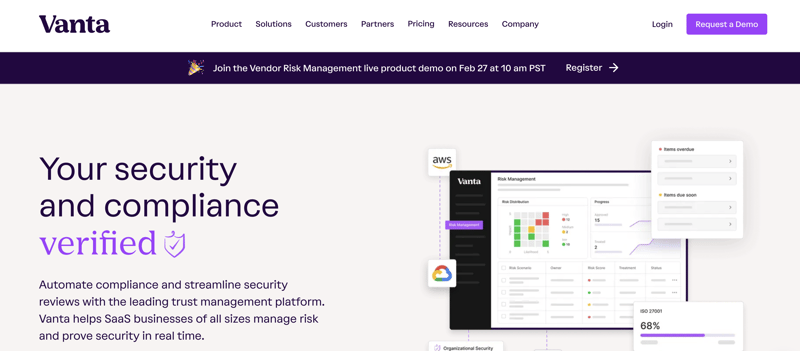
Vanta is a cloud-based compliance management platform. The service assesses your system and recommends changes in order to tune it to a specific data protection system. This package can enforce compliance with:
- GDPR
- HIPAA
- USDP
- SOC2
- ISO 27001
- NIST AI Risk Management Framework
The modules on this platform perform risk management which includes third-party risk, access auditing, and employee activity assessments. The result of this process is a risk score. You then get prioritized tasks and checklists that tell you what work needs to be done to become compliant with your target data privacy standard.
Pros
Vanta will scan your system and discover all devices. With these results, the tool generates a hardware inventory. It then scans each device and documents off of its software, creating a software inventory.
Once all of the IT assets have been documented, this system performs a vulnerability scan, identifying configuration weaknesses on all network devices and endpoints. It also checks for updates and patch availability, noting which packages are not up to the latest patch status versions.
Cons
Despite having three plan levels to cater to different types of companies, it isn’t suitable for small businesses or enterprises on tight budgets. The platform doesn’t publish its prices. However, Vanta’s AWS page lists the starting price for the lowest package is $7,500 per year.
The system relies heavily on its integrations library and if an integration doesn’t exist, or is not comprehensive, Vanta’s monitoring abilities are crippled.
Another detraction of this system is that it doesn’t provide automated remediation for the problems it discovers. For example, the vulnerability scanner will identify out-of-date software packages, it won’t patch them.
This service doesn’t have routines for discovery or categorizing PII and it doesn’t have any data movement controls.
Overall assessment
Vanta provides devices and software discovery. It also scans for misconfigurations and outdated software. However, the tool doesn’t provide any remediation automation and it doesn’t have routines that discover or classify sensitive data. In fact, it doesn’t have any data loss prevention features.
3. Ketch
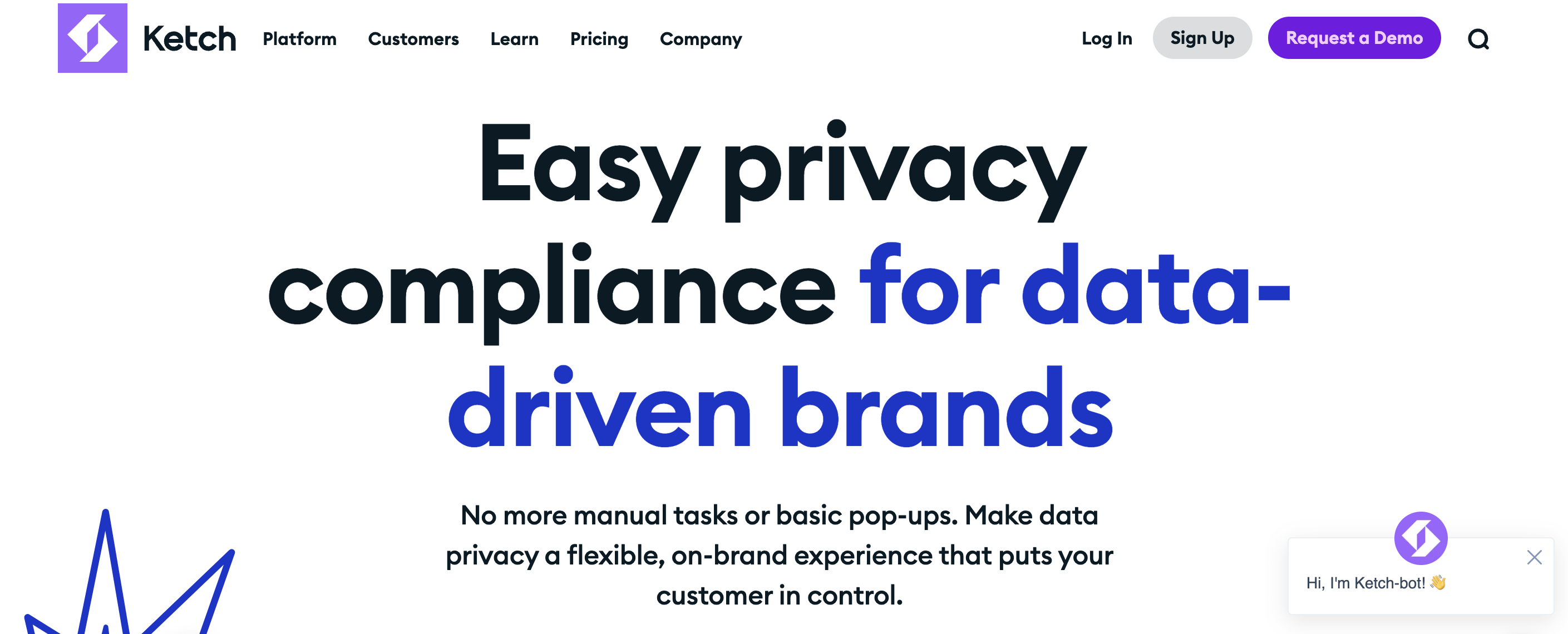
Ketch is a consent management package for websites that builds into compliance management tools in higher plans. This platform is delivered from the cloud and provides a free edition for cookie and data usage consent.
The units that match the facilities in Drata include a Privacy Impact Analysis (PIA) module that is a risk assessment service. It discovers and maps PII. The system then links the data from each person to records of consent. Each access attempt is also recorded for compliance auditing and reporting.
Pros
All plans provide website consent management. The two paid plans give you DSAR processing features with greater automation in the top plan. The system provides data management and compliance reporting for GDPR (EU), CCPA/CPRA (California), LGPD (Brazil), and VCDP (Virginia).
The top plan, called the enterprise edition, includes Ketch for Developers. This is a workflow orchestration system that shepherds data from one application to another. This tool could be effective in many situations and would be interesting for companies that want to create their own closed-loop system by stringing third-party software together.
Cons
Ketch doesn’t publish its price list and, in fact, doesn’t have a fixed price for either of its two paid plans, which are called Essentials and enterprise. The free plan will appeal to small businesses that run websites. The two paid plans build on the free edition and include all of its facilities.
The system doesn’t allow for backend sharing between sites. You have to develop data management services for each of your sites, which creates a duplication of effort and also complicates the process of administration.
The Ketch system is relatively new and it doesn’t have full documentation or a comprehensive library of integrations. This makes implementations difficult because integrations often have to be adjusted, rewritten, or created from scratch.
Ketch for Developers isn’t available as a standalone package, which limits its audience.
Overall assessment
Ketch is tethered to its website consent management core, which limits the appeal on many of its higher features, such as Ketch for Developers. The system competes more with Enzuzo rather than Drata. Ketch lacks compliance reporting features and its data management services are focused more on providing the information needed for DSAR fulfillment.
4. OneTrust
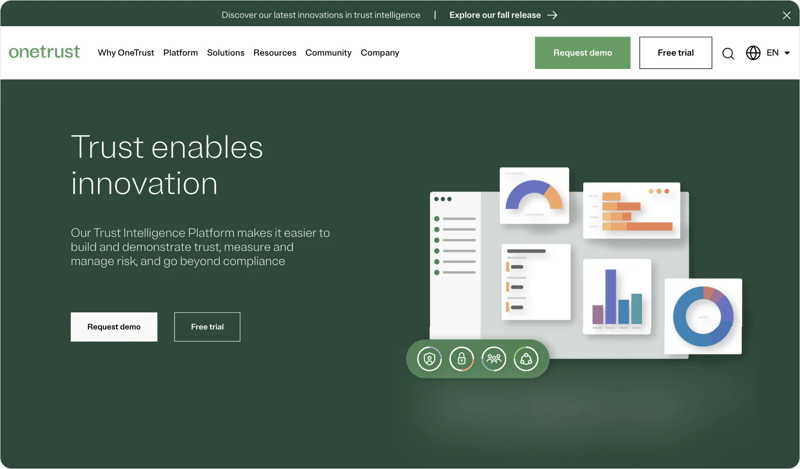
OneTrust is a cloud platform that offers a number of packages that implement corporate management in different formats. This system is probably the closest option of this list to the Drata platform because it is not anchored on website consent management. However, this function is included in its Privacy and Data Governance package. This unit provides compliance to a long list of data privacy standards.
The OneTrust Privacy and Data Governance service covers PII management standards and also industry-specific data protection requirements. These include:
- GDPR
- CCPA/CPRA
- LGPD
- PIPEDA
- PCI DSS
- HIPAA
- SOX
The package provides sensitive data discovery and classification as well as access and usage tracking and DSAR fulfillment services. The company offers legal advice and training services as well as automated systems.
Pros
This platform is very large and it is only one of four cloud-based packages offered by OneTrust. While the system provides extensive consent management services for websites, its operations are not limited to managing data for eCommerce enterprises.
The package will scour the servers of a new client, locating and classifying discovered data. This process is adapted to whatever standards the administrator selects for compliance. The tool also scans for storage and system security weaknesses and produces a list of tasks that need to be performed in order to achieve compliance.
Like Enzuzo, this platform focuses on data security rather than application access controls. It also tracks data access and use and optionally provides legal support and training for staff.
Cons
The Privacy and Data Governance platform is not an off-the-shelf package and there are no published prices for its services. The system relies on automated activity tracking and is provided from the cloud. It doesn’t include any controls for possible offline data theft channels such as printing or file transfers to USB sticks. Thus, the controls that this top-of-the-line system provides can easily be circumvented.
Users report that the interface is a little dated and difficult to navigate. As with just about all of the packages on this list, the integration library is a source of irritation to many.
Overall assessment
OneTrust provides compliance management for many data privacy standards. It is very well supported by a team of legal experts and is updated as soon as amendments are made to any of the regulations that it supports. The system provides expert compliance for industry standards and not just international PII protection requirements.
The legal services that are available in the package can be useful for ad-hoc advice. However, remote lawyers won’t be of any help if you actually have to go to court – you will need a real-world legal team that is available in your area to go to court with you.
5. TrustArc
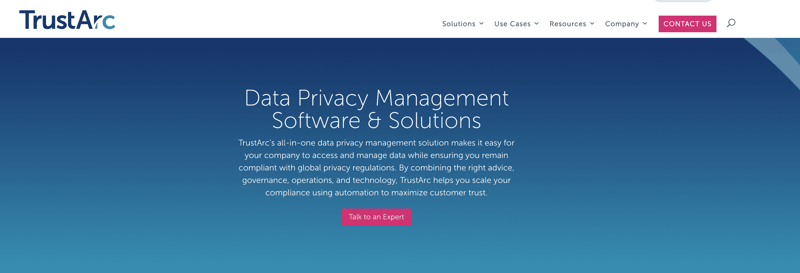
TrustArc is a large cloud platform of data privacy and compliance services. This is a comparable package to the services of Drata. This system has wider application possibilities than just website consent management. However, website legal pages and consent banners are offered by the platform.
This service is concerned with the use of PII and compliance with government regulations rather than industry standards. It enforces GDPR, CCPA/CPRA, LGPD, and China’s PIPL rules.
Pros
The TrustArc platform hosts many modules that include the Data Inventory Hub, Privacy Central, Assessment Manager, and Risk Profile. These are the four units that make up the Privacy Governance and Data Operations part of the platform. The service locates sensitive data and categorizes it, which means that it identifies those data instances that need to be protected for the relevant regulation.
The service can adapt its operations according to the location of the data subject. It can also block access to data for users that are located outside the permitted area – a necessary feature for GDPR compliance.
Cons
TrustArc has recently reorganized its marketing strategy and it no longer defines packages or plan levels. Instead, the service’s website lists all of the platform’s modules without explaining what combinations are offered or how they are priced. No one wants to have to sit through a long sales pitch only to find that the system costs more than the IT department’s budget. So, this new marketing strategy could prove to be a mistake.
Small businesses that do take the plunge find that it is very difficult to set the service up themselves, without the pricey technicians and consultants that big businesses usually hire for these tasks.
Overall assessment
TrustArc offers a variety of services but it has recently reduced the attraction of the platform by obscuring how its units are packaged and priced. The system offers services for website consent management that include DSAR processing. It also has more complex data discovery and access tracking features.
6. Resolver
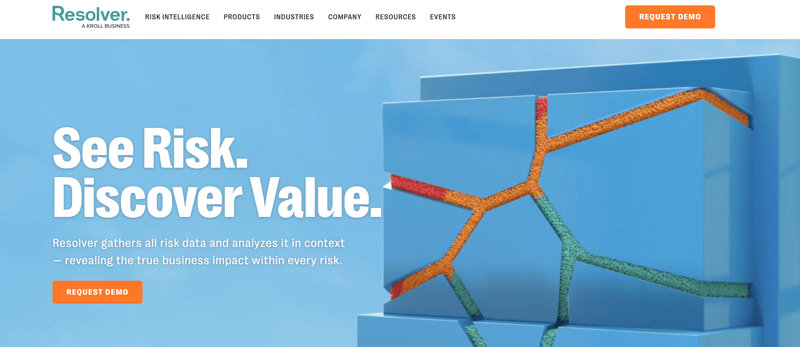
Resolver is a risk and compliance management system with additional incident management and threat protection services. This is a good combination of services because there is a great deal of overlap between the responsibilities of system security, data protection, and data privacy standards compliance.
Pros
This platform extends beyond the remit of the other platforms on this list in terms of its data access controls because it also includes action controls for issues such as money laundering prevention. The tool aims to protect its customers from prosecution over a number of pitfalls to modern business operations. The compliance manager can be tuned to CCPA
Cons
Most of the compliance measures in this package relate to financial activity rather than data privacy. The tool is only intended for use in the USA, so it doesn’t implement GDPR or other non-US standards.
The tool gets glowing reviews from its users and high ratings. However, even very large businesses with technicians and specialists at their disposal find this package difficult to install and adapt.
Overall assessment
The Resolver system is designed to protect financial institutions. It not only prevents CCPA transgressions but also guards against hacker trickery and the possibility of intruders tampering with data and processes to steal money.
7. Collibra
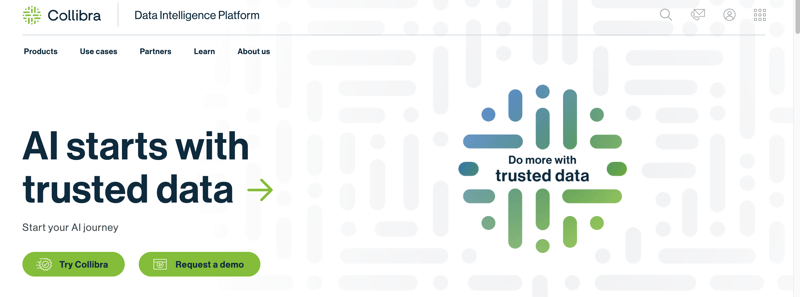
Collibra is a software package that is available as a service on the marketplaces of AWS or GCP. This tool is intended for use by big data analyzers. The data governance features in the platform ensure that collected data is not put to inappropriate use or accessed by accessible by anyone.
While the data analysis tools that big data companies use categorize data for insights and metadata enrichment, they don’t always implement sensitive data identification. So, those companies will need the Collibra data searches alongside their regular analytical services to ensure that compliance is implemented.
Pros
Collibra simplifies data management by scanning all endpoints and cloud storage accounts to move data to a central store. Thus, data-accessing applications need to be adjusted to look in a new place for their source data. This strategy makes data security and access tracking a lot easier.
Cons
The act of moving all data to a central store works well in the long run but it can be disruptive during the onboarding phase. Some users have reported bugs in the system that prevent access to data and require complicated adjustments to combat.
Even large businesses with teams of technicians find this package difficult to get running.
Overall assessment
This system is similar to Drata in that it focuses data protection mechanisms on limited access to specific, approved applications and relies on that software’s effective access rights management. Data stores are protected by encryption to prevent side access attempts and render unauthorized copying useless.
The platform implements compliance with GDPR, HIPAA, SOX, and PCI DSS.
Factors to Consider When Choosing Drata Competitors & Alternatives
While the tools on our list have some services in common, we tried to provide a range of systems that in many cases, are partial matches from what Drata does or provide a list of services that could be described as Drata+. When selecting competitors to Drata we considered a number of important factors, which are detailed here.
Price transparency and affordability
Many data privacy systems are marketed without any prices. In some cases, this is because companies want to encourage contact so prospective buyers don’t forget about their products and buy a rival service instead. Another reason that companies don’t want to publish their prices is that the products are expensive. However, the Sales team believes that they have such strong powers of persuasion, that they can overcome that barrier.
Unfortunately, the average buyer assumes that the lack of a price tag means that they are going to get bilked. The assumption is that the company is not prepared to compete on price because they don’t compare well. Another fear is that Sales staff have the opportunity to load on higher prices whenever they feel they can get away with it.
We prefer products that publish their prices. However, we sometimes include products that aren’t priced because they have good user reviews.
Integrations
The term “integration” means that one software system can exchange data with another package. The world can also be used to describe an extension to a monitoring package. For example, you might have a security scanner that looks at endpoint activity and then discover that it has an integration for Cisco switches; you activate the integration and that adds on new consoles in the dashboard and you have new sources of information.
When you are reading the explanation of a data management tool, you will see that many have “integrations.” However, until you know which end of the “integration” spectrum they are at, you shouldn’t count that factor as a reason to buy. If a producer provides details of all the wonderful things an integration can do, it can be counted towards your interest in the system.
Ease of use
No marketing department is ever going to publish a website that says, “This tool can do everything you need, but, damn, it’s so hard to use.” Clunky screens, slow response times, obscure navigation mechanisms, and a poor user guide can turn the most comprehensive system in the world into a pile of trash.
Reading user reviews is a good way to find out about a tool’s usability. However, you might not have the same skill set as the people who write enthusiastic reviews about a tool, so the system might be good for them but not for you. Demos can be good, but a pre-sales technician’s rush through a bunch of screens is scripted to make it look easy. Ultimately, the only way to know whether you will find a tool easy to use is to use it. So, we really like free trials.
Adaptability
Everyone thinks that their business is completely unique. However, if that were so, they would never find any software. Just as many different companies use Microsoft Word, many different companies can use the same consent management system, such as Enzuzo, on their truly unique websites. The producers of IT systems market to the average need and boil down their products to universal tasks – everything else is just decoration.
Having said all of that, most software will need some adaptations. For example, a healthcare provider will use data in different ways to the marketer of medicines. Software providers build in adaptability with plug-ins and extensions for specialized functions. Integrations are another form of customization. If you need customizations to make a system work for you, look at how easy they are to implement. If you just click on a menu option and select from a list, then great; if you need to recode parts of the system, then walk away, don’t buy.
Customer Support
If you can’t get your new system to work or if your operational service suddenly breaks down for no reason, you don’t want to be in a phone or chat queue for hours. You need to get through to help quickly. What’s more, you need to get through to a technical expert who knows the system inside out, not some outsourced temp in a third-world country.
Customer Support can make up for all of the problems that people encounter with a data protection package. If the system is difficult to install, can’t be set up, doesn’t have any documentation, and falls over without warning, hopefully, the Customer Support team is easy to get hold of and knows what you and they are talking about. This happens with a lot of not-so-perfect tools. However, if the tool is clunky and the Customer Support team takes days to respond, move on.
Compliance
Compliance is probably the first thing you should check when browsing for a data privacy tool. When you look for on-device software, you need to be sure that it will run on your operating system and when you are running a business that handles sensitive data, you should ensure that a new data management package hits the data privacy standard that you have to qualify for in order to continue trading.
This is what “compliance” means: will the package get your system suitable for operations within the guidelines of specific rules? Businesses that store identity information about members of the public (PII) have a list of standards that they need to comply with: GDPR, CCPA, PIPEDA, and LGPD among others. PCI DSS is mandatory for companies that take, store, and process payment card information, and HIPAA is important for companies that operate in the healthcare sector. There are many more standards that you might need to follow.
Conclusions
This list focuses on data privacy compliance services that compete with Drata. This line of security is particularly important for eCommerce businesses, so you will note that a number of the alternatives that we chose focus heavily on website compliance and data usage consent systems.
Learn how Enzuzo can be your data privacy management solution. Book a no-obligation discovery call with Mate Prgin, CEO 👇

Osman Husain
Osman is the content lead at Enzuzo. He has a background in data privacy management via a two-year role at ExpressVPN and extensive freelance work with cybersecurity and blockchain companies. Osman also holds an MBA from the Toronto Metropolitan University.
